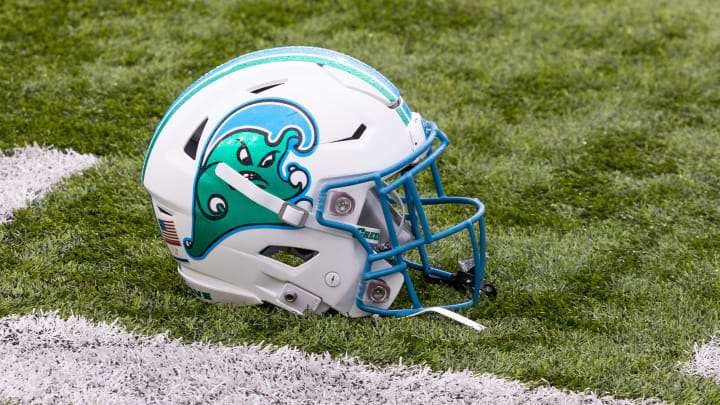Tulane to Require Coaches, Staff to Sign NDA as Precautionary Move Against Sports Betting

In this story:
In light of gambling’s pervasiveness in college sports, Tulane is taking a unique formal step to combat information sharing: requiring coaches and athletic staff to sign a nondisclosure agreement, reviewed by Sports Illustrated, that governs the release of “Confidential Information” in any form including financial, education or medical records relevant to sports betting. The form was revealed to coaches and staff in a meeting Monday, according to a person familiar with the gathering.
The documents goes on to state that access to confidential information must not be used to bet or shared with individuals associated with sports betting. If a staff member becomes aware of unauthorized disclosure, they’re supposed to notify the athletic department’s CFO. “Failure to abide by this Confidentiality Statement may subject me to disciplinary action up to and including termination of employment,” the document reads.
“There have been incidents around the country where the intersection of gambling and college athletics have come to the forefront,” Tulane athletic director Troy Dannen says. “There are two concerns. One is the gambling itself, and that becomes fairly self-explanatory. But for us, this is a reminder to everyone who works in the department, from tutors to academic advisers to equipment to every staff member, that there’s also information that you hold because you’re around the athletes, you’re around the training room, you’re around the academic advisers. There’s information you hold that can also be used for gambling purposes, and that information needs to stay closely held for the protection of the athlete and the protection of the integrity of the game.”
While there has not been a specific incident of athletic staffers sharing inside information at Tulane that prompted the creation of the document, school administrators say this is a precautionary move, especially considering the explosive gambling scandals at Iowa and Iowa State—Dannen’s own home state.
“If you are anyone [on staff] and do not sign this, there will not be a place for you in this particular athletic department,” Dannen says. “This is athletic department staff, managers, student managers, tutors, anybody that works, whether as a volunteer or an employee of the athletic department. Anyone that would have access to information.”
Dannen says that breadth is because of how seemingly innocuous information can filter out in so many ways. If an equipment staffer happens to walk by the training room and sees a star player with multiple doctors, that could potentially be valuable information to a bettor. Tulane is not asking its athletes to sign the form. There are NCAA rules, however, that forbid coaches and athletes from sports betting or providing information to bettors. How athletes share information is its own separate issue.
“It’s a fine line,” Dannen says. If the backup quarterback finds out he’s starting on Saturday, you don’t want to tell him he can’t tell [his] parents he’s starting on Saturday.”
Schools across the country have been trying to find ways to educate players and staff regarding gambling. A college administrator told SI that, multiple times, their coaches were emailed last season asking for inside information by bettors. Tulane is also no stranger to the impact gambling can have on an athletic department: A men’s basketball point-shaving scandal in the 1980s ended up forcing the program to disband for two years, and multiple people, including athletes, were indicted.
More recently, sources tell SI that a foot injury forced starting quarterback Michael Pratt to wear a walking boot in December as a precautionary measure in the lead-up to the Cotton Bowl against USC. The news of the injury didn’t leak but could have heavily influenced the betting line, which had minimal movement from the time it opened in early December to the game’s kickoff on Jan. 2, which the Green Wave won outright as a slight underdog.
Sports betting is legal in Louisiana. In Baton Rouge, LSU coach Brian Kelly is trying to assert control over his team’s information by releasing injury updates three times during every game week (while NFL teams have required and regimented injury reporting, college teams do not). There are no plans to do the same at Tulane yet, but the school does partner with industry watchdog U.S. Integrity.

Richard Johnson is known for his college sports expertise. He co-hosts the “Split Zone Duo” podcast and co-authored The Sinful Seven: Sci-fi Western Legends of the NCAA. Richard was the 2022 winner of the Edward Aschoff Rising Star Award, and previously appeared as an analyst on the SEC Network show “Thinking Out Loud.” He established an early career with ESPN and SB Nation before joining Sports Illustrated in 2021 and lives in Brooklyn.
Follow RJ_cfb